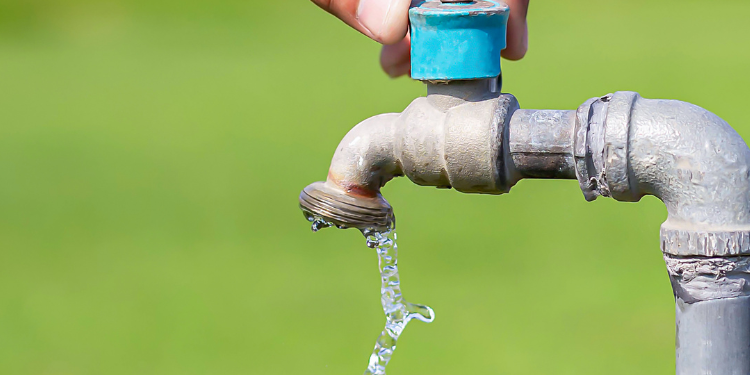If you live in Richardson, Texas, and rely on your water heater for daily tasks like showering, cooking, and cleaning, it’s crucial to know when it may be time for a replacement. A malfunctioning water heater can lead to more than just cold showers; it can cause high utility bills, potential leaks, and even water damage. At Casto Leak Detection, we understand how vital it is to ensure your water heater is functioning properly, and we’re here to help you recognize the top signs that it’s time for a new water heater installation.
The water heater plays a critical role in your home’s comfort and efficiency. When it’s no longer functioning correctly, it can create numerous issues that require attention. Below, we’ll discuss the warning signs that indicate it might be time to invest in a new system and how you can protect your home from potential water damage. By being proactive, you can avoid costly repairs and ensure your home remains in top condition.
Key Takeaway: Recognizing the signs of a failing water heater early can prevent further damage and save you money in the long run. Regular maintenance and knowing when it’s time for a replacement are key to avoiding unexpected breakdowns and costly repairs.
Signs of an Aging Water Heater
Your Water Heater Is Over 10 Years Old
The average lifespan of a traditional water heater is around 10-15 years. If your unit is approaching or has surpassed this mark, it’s time to consider a replacement. Older units tend to lose efficiency and become more prone to leaks and other malfunctions. Regular maintenance can extend your heater’s life, but when the age becomes a factor, it may not perform as efficiently as it used to. If you are in Richardson, Texas, and are unsure about the age of your water heater, contacting a professional like Casto Leak Detection can help determine its status.
Rusty Water or Corrosion
If you notice rusty water coming from your hot water taps, this could be a sign of corrosion inside the tank. Rust and corrosion are common in older water heaters, especially if the anode rod (which protects the tank from rust) has worn down. Rusty water not only affects the quality of your water but could also indicate a serious issue with your heater’s internal components. Additionally, corrosion on the outside of the tank is a major warning sign that it’s time for a replacement.
Frequent Repairs and Leaks
If you’ve been calling a plumber for frequent repairs, this could be a clear indicator that your water heater is on its last leg. Regular breakdowns and small leaks may not seem like a big deal at first, but they add up in cost and inconvenience over time. Persistent issues like leaks can also cause serious damage to your home’s structure if left unattended. If you suspect a leak, a professional leak detection service can help identify the issue before it escalates.
Decreased Efficiency and Higher Energy Bills
Fluctuating Water Temperatures
One of the most common signs of a failing water heater is inconsistent water temperature. If your hot water fluctuates between warm and cold without warning, it could mean that your water heater is struggling to keep up. This is often caused by sediment build-up inside the tank, which insulates the water from the heat source and makes it harder for the heater to maintain a steady temperature.
Increased Energy Bills
If you’ve noticed your energy bills rising without explanation, your water heater could be the culprit. As water heaters age, they become less efficient, requiring more energy to produce the same amount of hot water. This inefficiency is not only a financial burden but also an environmental one. A newer, more energy-efficient model can save you money on your energy bills and reduce your carbon footprint. If you’re concerned about the environmental impact, consider a tankless water heating system for improved efficiency.
Longer Heating Times
If it takes longer than usual for your water to heat up, your heater may be losing its ability to generate hot water quickly. This is another sign of sediment build-up, which makes it harder for the water to reach the desired temperature. Longer heating times can be a major inconvenience, especially in larger households, and may indicate that a new water heater is necessary.
Leaks and Water Damage
Water Pooling Around the Unit
If you notice water pooling around the base of your water heater, this is a sure sign of trouble. A leaking water heater can lead to significant water damage to your home if left unattended. The water may come from cracks in the tank due to metal expansion and contraction over time, or from loose connections. Either way, leaks require immediate attention to prevent further damage. Casto Leak Detection can help you determine the source of the leak and whether you need a simple repair or a full replacement.
Strange Noises from the Tank
Have you heard popping or rumbling sounds coming from your water heater? These noises often indicate a build-up of sediment at the bottom of the tank. As the sediment heats up and moves around, it creates noises that can worsen over time. This not only affects the efficiency of the heater but can also lead to significant wear and tear on the unit itself. When strange noises become more frequent, it’s time to start thinking about a replacement.
Water Discoloration
If your hot water has a reddish or brown tint, it’s likely due to rust inside the tank. While this is more common in older heaters, it can also occur in newer ones if the anode rod is no longer functioning properly. Rusty water can affect the taste, smell, and safety of your water, making it important to address this issue as soon as possible. In some cases, this can be resolved by replacing the anode rod, but in others, a full heater replacement may be necessary.
Answering Common Questions
How often should a water heater be replaced? Most traditional water heaters last between 10-15 years. However, this depends on factors like maintenance, water quality, and usage. Regular inspections can help you determine when it’s time for a replacement.
What’s the difference between a traditional and tankless water heater? A traditional water heater stores and heats water in a tank, while a tankless system heats water on demand. Tankless heaters are more energy-efficient and have a longer lifespan, making them a popular choice for homeowners.
What should I do if my water heater is leaking? If you notice a leak, it’s important to shut off the water supply to the heater and contact a professional immediately. A leak detection service can assess the situation and help determine whether a repair or replacement is necessary.
Consider the Costs and Benefits
When deciding whether to repair or replace your water heater, it’s important to consider the long-term costs and benefits. Frequent repairs and high energy bills can quickly add up, making a new installation a more cost-effective solution in the long run.
The Impact of Water Quality
Hard water can significantly affect the lifespan of your water heater by causing sediment build-up and corrosion. If you live in an area with hard water, you may need to replace your water heater sooner than expected. A water softener can help reduce the impact of hard water on your appliances.
Contact Casto Leak Detection for Expert Help
If you’re experiencing any of the issues mentioned above, it may be time for a new water heater installation in Richardson, Texas. At Casto Leak Detection, we specialize in leak detection and water heater services. Our team of experts is here to help you choose the best solution for your home’s needs. Contact us today to schedule an inspection and ensure your water heater is in top condition.
By being proactive, you can avoid costly repairs and enjoy reliable hot water for years to come.






